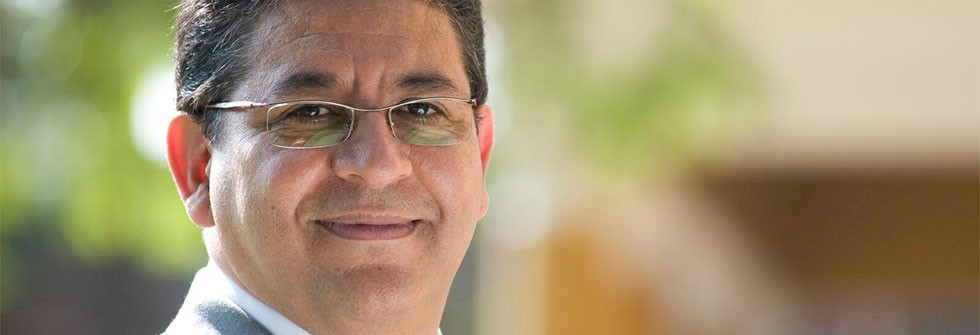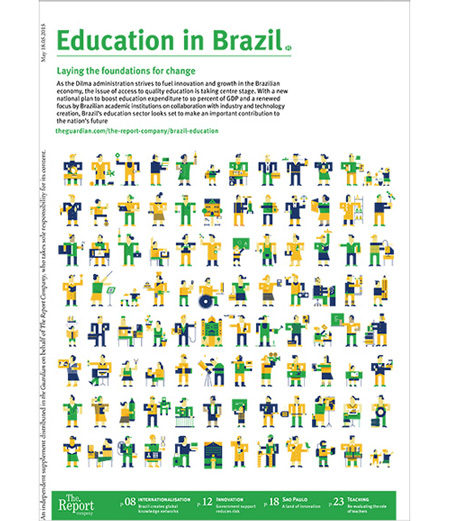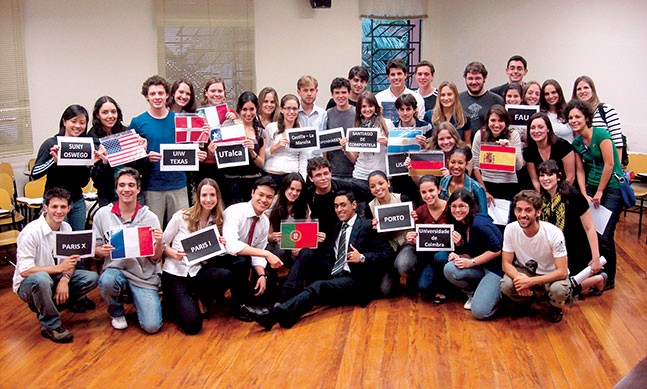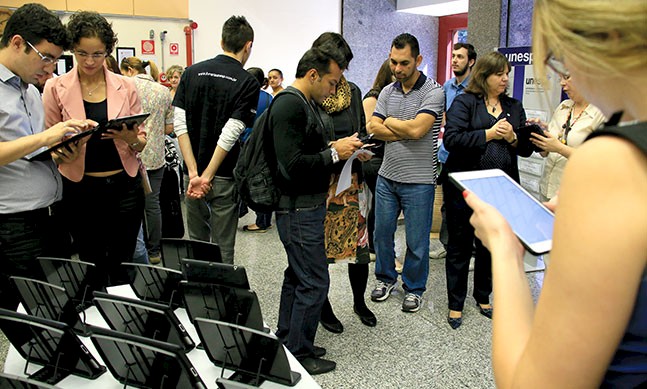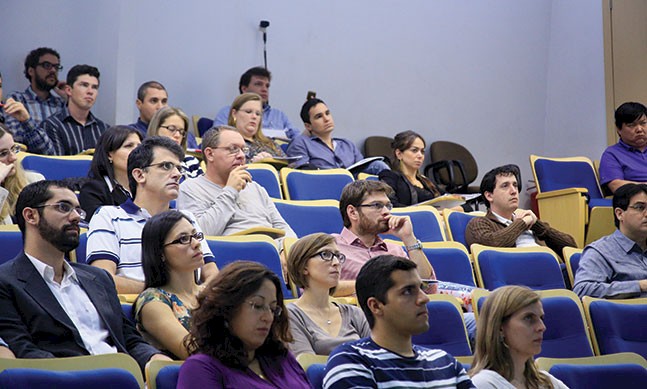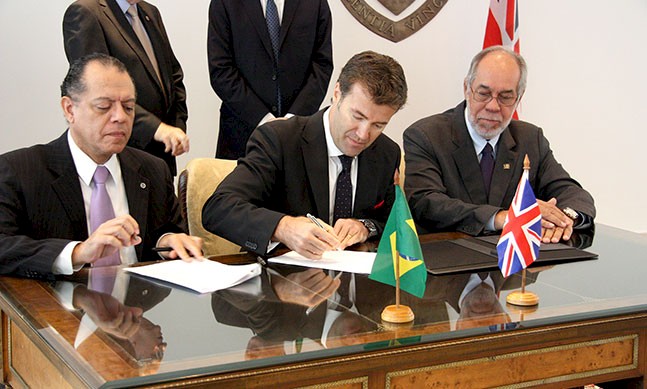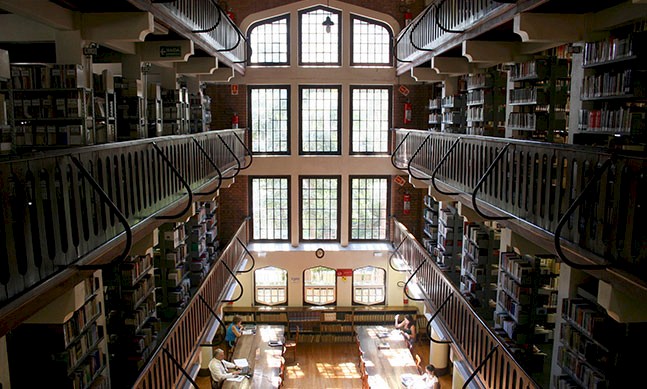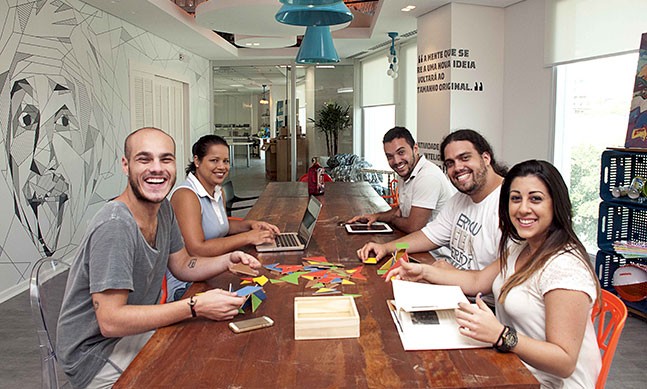The Methodist University of Sao Paulo State (UMESP), a privately funded, philanthropic higher education institution, is based in Sao Bernardo de Campos, one of three original municipalities that forms the powerful industrial region known as ABC. During a period of intense consolidation of higher education in Brazil, UMESP’s history and strong reputation has brought it to the attention of those eyeing the huge potential returns arising from the sector’s expansion, but its rector, Marcio de Moraes is also focussed on expanding UMESP’s influence and partnerships overseas. The Report Company met with him to find out more.
The Report Company: What is your position on Brazil’s education system?
Marcio de Moraes: We have certainly improved, especially in terms of numbers of students, but here I’m talking about higher education. As a whole, I don’t think the evolution we have experienced is enough. Brazil should have grown more, both in student numbers and in the quality of the education. There is a lack of professionals in certain areas, like engineering. Yes, we have improved, but not as much as we needed to. We are still lagging behind our neighbours in Latin America, countries with less thriving economies than Brazil’s, but with much better indexes in terms of higher education.
TRC: President Dilma has promised to invest royalties from pre-salt oil exploration in education. Some critics say that the country does not need more money, but better management. What challenges do you think the country faces?
MM: Sometimes we make estimates and spend money based on estimates, but they do not always come true. We are talking about a vast amount of money, but one of the problems is that these resources do not reach the end user, the student. There is a lot of spillage. I believe that our management structure could be less bureaucratic, which would optimise resources. Yes, if there is such an amount of resources for education - and we do expect that the public financing of private institutions would benefit as well - it is possible that we will see a great improvement in the future. I would rather be cautious, though, and only start thinking about the allocation of these resources when they are confirmed.
TRC: There has been a lot of consolidation activity in the last few years. Is that trend set to continue, and what do you forecast the effect on UMESP will be?
MM: I do believe there will be more consolidation; the large groups still have the resources to buy other institutions. I think this is the strategy they have found in order to keep growing. They buy other schools and, therefore, increase their number of students. I believe this process will go on for another five years but institutions like ours will continue to exist, because our challenge is quality, not quantity exclusively. There is space in the market for institutions with that goal.
“We are still lagging behind our neighbours in Latin America, countries with less thriving economies than Brazil’s.”Tweet This
TRC: You have been elected president of IAMSCU (International Association of Methodist-related Schools, Colleges, and Universities), the first Brazilian to hold the role. You have stated that education is part of your mission and that quality is non-negotiable. How do you make that happen?
MM: Within IAMSCU we have more than 750 Methodist schools, colleges and universities around the world and our challenge is much greater today. It was easier when our competitors did not have such great resources from investment funds and institutions that sought quality were recognised for it. I am not only speaking about Methodist institutions; there are other great institutions out there, but when I say that quality is in our DNA, what I mean is that the Methodist Church believes that education is part of its missionary work. To fulfil our mission we need to provide high-quality courses in which people not only are technically trained, but also become good citizens and serve the many people that are not as fortunate.
TRC: What is your assessment on internationalisation in the Brazilian education sector?
MM: The first challenge that we still haven’t been able to overcome is having classes in English. I believe that internationalisation can only come about when we can receive students here for undergraduate or graduate courses as citizens of the world. This is practically impossible currently because almost all of our classes are in Portuguese. People who want to come to Brazil to study need to learn Portuguese first, which is different from our students here, who have at least a basic knowledge of English. For us to really understand and see what internationalisation is and feels like, we have to receive students, because simply sending students abroad and getting them back here some time later is not enough.
TRC: How does UMESP adopt new technology in its teaching?
MM: Technology is a challenge that should always be dealt with a great level of care. It doesn’t make sense that many of our students enter university knowing about certain technology while our professors do not. This poses a relationship problem. We have been making it possible for our professors to know, master and use educational technology. This is not easy but we have been doing for a long time. What has been helping us is the fact that we started offering distance learning in 2006. Somehow, this process forced professors to lose their fear of technology. Since 2007, our professors have been participating in distance education projects. We have made important strides, but we still are not where we want to be or where we could be.
“The Methodist Church believes that education is part of its missionary work. To fulfil our mission we need to provide high-quality courses in which people not only are technically trained, but also become good citizens.”Tweet This
TRC: UMESP has courses specifically designed to meet the demands of local industry and therefore has an interest in keeping ABC industry flourishing. How is that relationship set to grow, and what does UMESP offer the region?
MM: More than 95 percent of our students live in the ABC region. They do not have to leave the region in order to obtain a good education and secondly, since these people are already here, local industry has a workforce on its doorstep. In Sao Bernardo and Santo Andre in particular, there has been a growth in the number of educational institutions dedicated to the region. Providing good technical, humanist education is our challenge, and knowing that the ABC has good human resources attracts industry. If people do not have to travel long distances for an education, their chances of performing well increases.
TRC: What is the reputation of UMESP in the region and what are your goals for your administration?
MM: I believe that the image of the university is good. UMESP has been providing higher education here for 45 years, but our challenge is to get people to recommend us. That is the best form of advertisement, especially regarding on-site courses. Another challenge is growing our distance education efforts to reach new places. We want to expand from 37 to 103 distance learning centres, which we expect to happen by the end of this year. We are waiting to receive authorisation from the ministry of education, but once we have it we will be ready to deliver the 103 courses. Distance education does not require infrastructure; it requires more professors, but those we have.
TRC: How do you view the partnership between Brazil and the UK?
MM: Brazilians have historically looked to Europe, including for higher education, but that path changed and Brazil started looking to the United States. Now I believe we are going back to our origins, and have better relations with Europe in general, not just the UK. I would go as far as to say that it was good that we were apart for a while, so that this moment could happen. I like the fact that we are getting closer to the UK. Since 2013 the university has enjoyed a partnership with the London Business School for lato sensu courses with the possibility of doing other modules in the UK as well. We want our MBAs to take off so we can really use this partnership. Overall, it would be very interesting to grow our partnerships with the UK’s institutions. We have a lot to contribute with our partners and I believe that both sides will benefit.
“Overall, it would be very interesting to grow our partnerships with the UK’s institutions. We have a lot to contribute with our partners and I believe that both sides will benefit.”Tweet This


